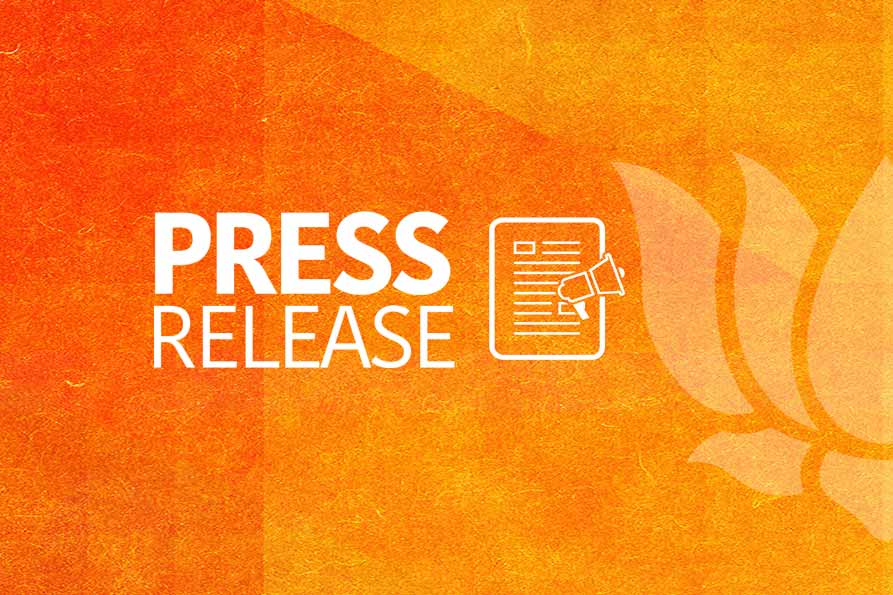
In July last year I had expressed my reservations about the Indo-US nuclear deal. Many of my fears have unfortunately come true, as the negotiations on this deal have progressed. It is crystal clear that in every round of negotiations with the US, India has ended up giving more and more concessions. The latest is the draft of the Waiver – Authority Bill introduced in the US Congress. According to this Bill the waiver will be granted by the President when India meets the seven conditions which have been mentioned in the Bill. The course of action of the Government of India, in future, will thus be determined not by laws passed by the Parliament of India or by international covenants to which we are party, but by the law framed by the US Congress.
What is even more shocking is the fact that if the President of US determines that India has "detonated a nuclear explosive device" after this enactment by the US Congress, such waiver shall be terminated. The obligations under this Bill are far more stringent than those under the CTBT. The CTBT cannot come into force until forty odd countries, including, the US itself and China and Pakistan, adhere to it. This Bill, when passed, will convert a voluntary moratorium on further tests by India into a legally binding commitment, for all times to come, without any possibility of withdrawal under special circumstances, as provided for in the CTBT. This position is not acceptable.
When the Atomic Energy Act of the US was amended for China, China was granted waiver in perpetuity. In the case of India, it would be periodic. The President will have to determine from time to time whether India is in compliance with the conditionality built into the Act. This position is also unacceptable.
The Prime Minister assures us that if the US or the Nuclear Suppliers Group do not keep their commitments, India would have the option to walk out of its commitments under the deal. This logic is seriously flawed. The nation has not been taken into confidence so far about the cost of separation of our nuclear facilities between civilian and military. According to reliable estimates, it is going to be heavy. Will this not be wasted expenditure? We also plan to set up nuclear power plants at a heavy cost. What would happen to that investment if fuel supplies for them were to be stopped due to an adverse determination by the US President?
India's nuclear capability has been built brick by brick, over the last six decades by our brilliant and dedicated scientists and technologists. The nuclear programme is the result of a country – wide consensus since 1969 when India did not adhere to the NPT and more specially since the tests of 1974 and 1998.The nation shall pay a heavy price in future by closing its options on the size of its credible minimum nuclear deterrent. Our nuclear armed neighbours shall face no such constraints.
The least the Government of India should do is to insist that there should be an all-time waiver by the US President as in the case of China. Further, India should retain the right to conduct nuclear tests if any other country, such as China or Pakistan, were to do so.
What is even more shocking is the fact that if the President of US determines that India has "detonated a nuclear explosive device" after this enactment by the US Congress, such waiver shall be terminated. The obligations under this Bill are far more stringent than those under the CTBT. The CTBT cannot come into force until forty odd countries, including, the US itself and China and Pakistan, adhere to it. This Bill, when passed, will convert a voluntary moratorium on further tests by India into a legally binding commitment, for all times to come, without any possibility of withdrawal under special circumstances, as provided for in the CTBT. This position is not acceptable.
When the Atomic Energy Act of the US was amended for China, China was granted waiver in perpetuity. In the case of India, it would be periodic. The President will have to determine from time to time whether India is in compliance with the conditionality built into the Act. This position is also unacceptable.
The Prime Minister assures us that if the US or the Nuclear Suppliers Group do not keep their commitments, India would have the option to walk out of its commitments under the deal. This logic is seriously flawed. The nation has not been taken into confidence so far about the cost of separation of our nuclear facilities between civilian and military. According to reliable estimates, it is going to be heavy. Will this not be wasted expenditure? We also plan to set up nuclear power plants at a heavy cost. What would happen to that investment if fuel supplies for them were to be stopped due to an adverse determination by the US President?
India's nuclear capability has been built brick by brick, over the last six decades by our brilliant and dedicated scientists and technologists. The nuclear programme is the result of a country – wide consensus since 1969 when India did not adhere to the NPT and more specially since the tests of 1974 and 1998.The nation shall pay a heavy price in future by closing its options on the size of its credible minimum nuclear deterrent. Our nuclear armed neighbours shall face no such constraints.
The least the Government of India should do is to insist that there should be an all-time waiver by the US President as in the case of China. Further, India should retain the right to conduct nuclear tests if any other country, such as China or Pakistan, were to do so.
To Write Comment Please Login



.gif)





